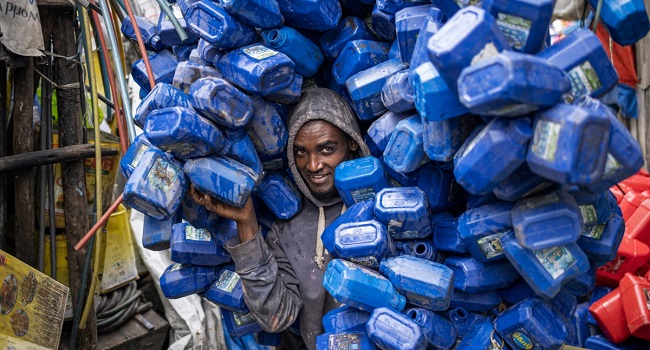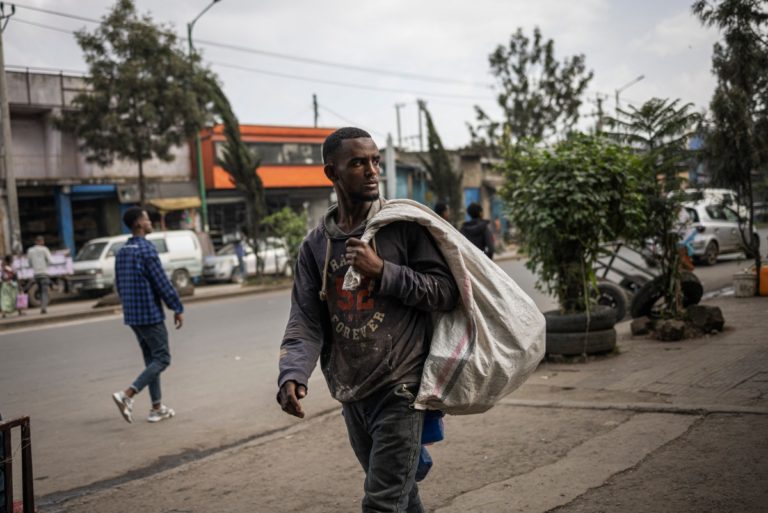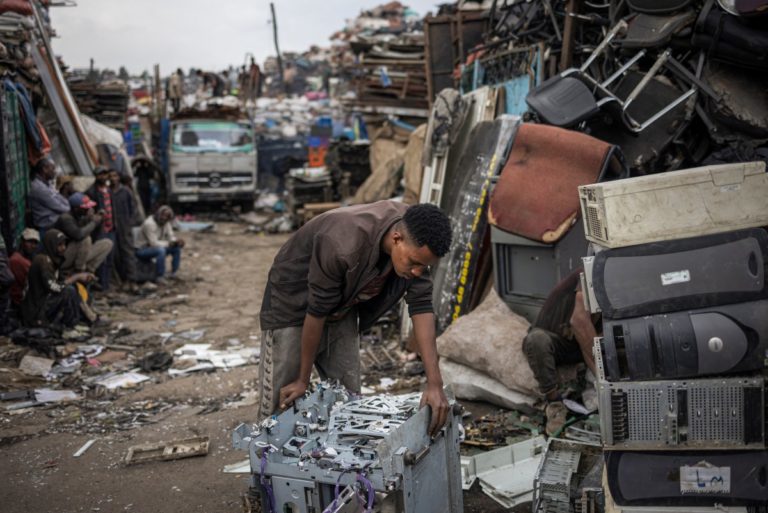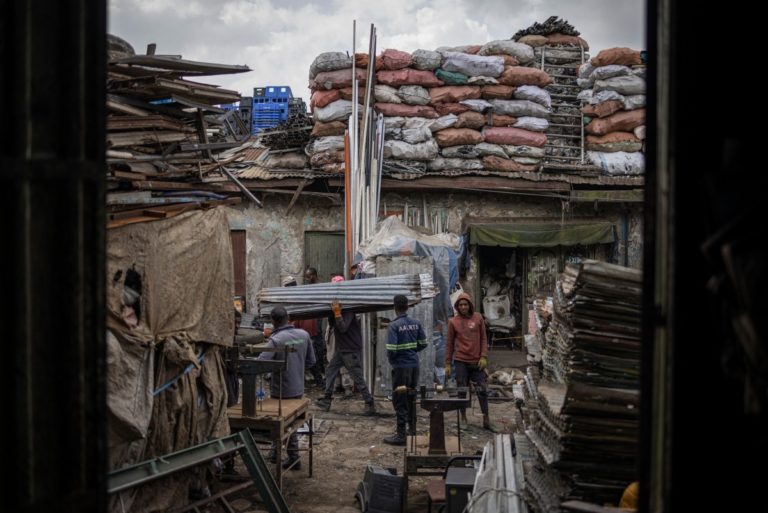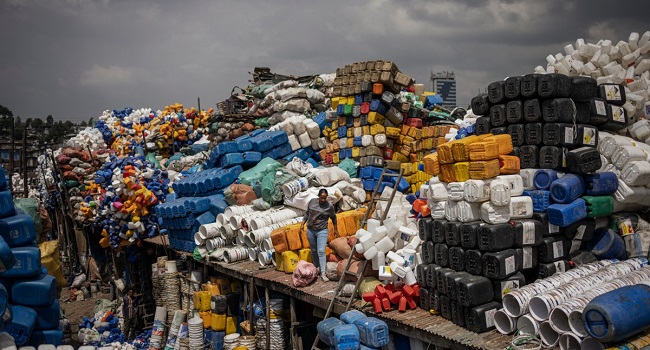With a worn-out bag slung over his shoulder, Dereje Enigdamekonen weaves through the labyrinthine paths of Merkato market in Addis Ababa, seeking out discarded items scattered around the Ethiopian capital.
“Korale, korale,” he calls out, a term in Amharic coined to describe the city’s recyclers—primarily men—who search for reusable items ranging from plastic jerry cans and old electronics to shoes and metal parts.
Once found, these objects are either repaired, disassembled for usable parts, or creatively repurposed—keeping them out of landfills and turning potential litter into new products.
According to AFP, Dereje, who’s been doing this work rain or shine for a year, explains, “I buy anything that can be reused.”
For a kilogram of metal, he can earn about 40 birr (roughly $0.30), while plastic jerry cans fetch between 3 and 25 birr depending on their size. Smiling, he says, “Waste can be transformed into money.”
After hours of searching, the korales gather at a section of Merkato known as Minalesh Tera, which in Amharic means “What do you have?”
In this part of Africa’s largest open-air market, recyclers sell their finds to middlemen like Tesfaye Getahun, who was busy dismantling an old printer to retrieve its motherboard and metal parts.
Tesfaye explained, “They aren’t used anymore, and if left like that, they can cause environmental pollution. But if they are disassembled and sold for parts, it helps prevent pollution.”
According to a 2020 report by the United Nations Development Programme (UNDP), Addis Ababa generates around 400,000 tonnes of waste each year, of which only 70% is managed by official waste collection services.
Earning a Living and Protecting the Environment
Tamirat Dejene, 21, stands amidst stacks of plastic jerry cans in his shop. For the past four years, he has been making a living by collecting and reselling plastic, earning between 500 and 1,000 birr ($4 to $8.50) daily—a significant income in a nation where over a third of the 120 million population lives below the poverty line, according to World Bank statistics.
“We earn our living and we also help the environment because these items are not biodegradable.
“It is also beneficial for Addis Ababa: if this waste were not collected, the city’s landfills would overflow. So we earn our living while providing a solution,” said Tamirat.
Once the recyclables are repurposed in Minalesh Tera, they are sold in markets across the capital and beyond.
For example, Biruk Shimeles, 31, buys scrap metal to create aluminium charcoal stoves, which he exports to Sudan, Djibouti, and Somalia.
“This work protects the community from waste by transforming it into a business opportunity,” Biruk remarked.
Ethiopia’s korales demonstrate how recycling can be both a source of income and an environmentally sustainable practice, breathing new life into discarded objects while contributing to the local economy.
